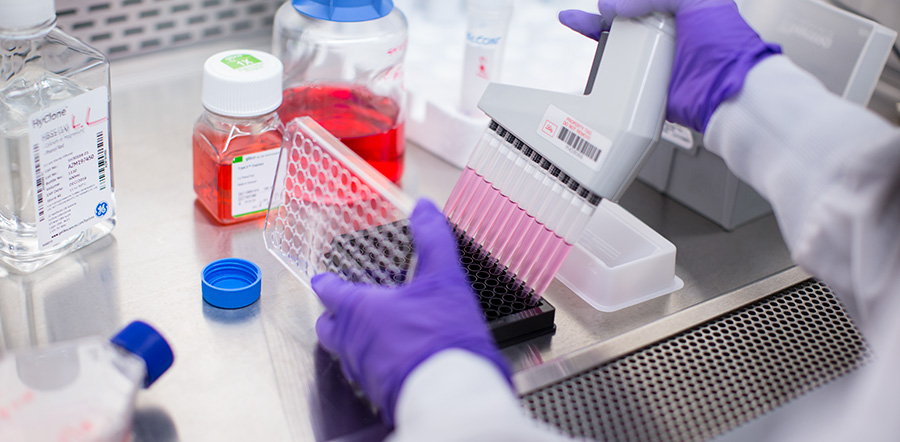Animal Care and Use
Since our founding in 1876, Lilly has worked tirelessly to discover medicines that make life better. We’ve been pioneers behind major breakthroughs against some of the world’s most devastating diseases, so we understand that developing new medicines demands determination and long-term investment, and it often requires years of laboratory research, followed by years of clinical trials.
Prior to the clinical trial phase, a critical part of the laboratory research process is what is known as “ in vivo” studies conducted in animals. In these studies, potential new medicines are tested in animals to evaluate how the medicine functions in a living organism. In biomedical research, animals have contributed to lifesaving treatments in the areas of cancer, diabetes, vaccines, high blood pressure and neurological disorders, just to name a few. Animals have also helped provide solutions in areas such as veterinary medicine, parasite control, analgesia and ensuring safe and affordable food supplies globally.
Research advances in human- and animal medicines have made life better for countless people as well as companion- and agricultural animals worldwide. However, at Lilly, we also recognize that we have a moral and ethical responsibility for the welfare of animals used in research. This is why we have strong policies and principles in place: to ensure that all animal research conducted either by our employees or by third parties on our behalf is in line with our values.
Principles of Medical Research
Principles of Medical Research
Clinical Trials
Learn more

